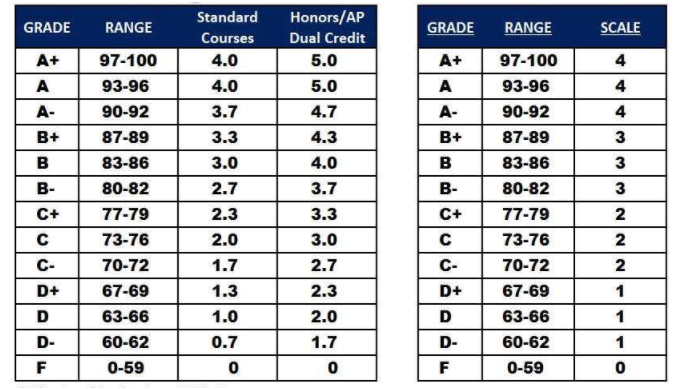Decoding GPA
GPA. This acronym is often thrown around the hallowed offices of high school guidance counselors and amongst anxious seniors hoping to gain acceptance into their dream colleges and universities. But what does GPA actually mean?
GPA is short for Grade Point Average. An individual’s grade point average is a number representing the average value of the accumulated final grades earned in courses over time. A student’s grade point average is calculated by adding up all accumulated final grades and dividing that figure by the number of grades awarded.
Grade Point Averages sound simplistic in nature, but are made more complex due to the varying level of courses offered in schools. In any given high school there can be up to five different levels of course difficulty. These classes can range from General Education courses all the way to Advanced Placement courses. Depending on the school, and depending on the level of difficulty of the course, different values can be awarded for grades based on the course difficulty.
For example, a student taking an AP (Advanced Placement) course could earn a 5.0 for receiving an A, meanwhile a student in an Honors course who received an A would only earn a 4.0 towards their GPA. This is called a weighted GPA (see chart below). In this system the difficulty of courses are taken into account and the point value of grades at each level vary. This is different than a unweighted GPA. In the unweighted GPA system all grades received earn the same amount of points towards an individual’s GPA, and all GPAs are based out of a 4.0 max. For example, in the unweighted GPA system if a student earned a B in a CP course, and a student earned a B in an AP course, both students would receive a 3.0 towards their GPA.
Why does any of this matter? What is the point of even wasting the time to calculate someone’s GPA? Well, there are a few different scenarios in which GPAs are used. GPA can be used as a basis for determining admissions at universities, or to determine which students are eligible for scholarships. It can also be used in determining students class rank.
With the topic of student’s grade point averages comes the many debates amongst those who discuss it. There has long been disagreements and conflicting points of view when it comes to discussing the actual importance of GPAs. Some people argue that GPA does not accurately reflect a student’s intelligence. A student can take harder classes and get worse grades than a student in less challenging courses, resulting in a lower GPA for the student in the more difficult class. This does not necessarily mean that the student is unintelligent. Certain organizations argue that GPA is merely just a number and does not reflect the worth or intelligence of students.
What does all this mean for students that are prospective college applicants? It really depends on your opinion generated from the facts. Yes, GPA is in fact important for anyone looking to apply for college. And yes, GPA does somewhat reflect your work completed during your high school career. However, it is only important to a certain extent. When applying to college other factors such as SAT scores, community service, and letters of recommendation are considered, not just GPA. In the end, it comes down to how well rounded of a student you are when applying to college, not just a number generated based on your past experiences.










